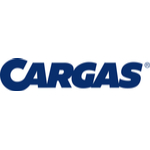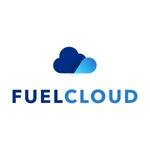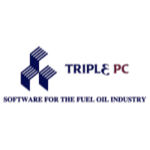TechnologyCounter provides genuine, unbiased real user reviews to help buyers make informed decisions. We may earn a referral fee when you purchase through our links, at no extra cost to you.
List of Best Fuel Management System
Showing 1 - 10 of 10 productsBlue Cow Software is a dynamic and innovative technology company that offers state-of-the-art software solutions for businesses of all sizes. With a strong focus on user experience and functionality, Blue Cow Software helps companies streamline their...Read Blue Cow Software Reviews
Cargas Energy is a leading software provider that specializes in energy management solutions for businesses of all sizes. With a strong focus on innovation and efficiency, Cargas Energy offers powerful tools and resources to help streamline energy pr...Read Cargas Energy Reviews
Hectronic, a leading software company that has been revolutionizing the digital landscape since its inception. With a focus on innovation and efficiency, Hectronic provides top-notch solutions for businesses of all sizes to enhance their operations a...Read Hectronic Reviews
iRely Petroleum is a leading software solution designed specifically for the petroleum industry. It is a tool that helps streamline operations, manage inventory and resources, and optimize sales and delivery processes. With a user-friendly interface...Read iRely Petroleum Reviews
Fuel-Central, the all-in-one solution for managing your fuel needs. Say goodbye to outdated systems and hello to efficient fuel management with our user-friendly software. From tracking inventory to monitoring usage, Fuel-Central has you covered. Upg...Read Fuel-Central Reviews
FuelsManager is a fuel management software designed to streamline and optimize the process of fuel management for industries, organizations, and enterprises. With its innovative features and user-friendly interface, FuelsManager is the go-to solution...Read FuelsManager Reviews
FuelCloud is revolutionizing the way businesses manage their fuel with their innovative software. Providing a seamless solution for inventory tracking, analytics, and remote fuel management, FuelCloud is the go-to choice for companies looking to opti...Read FuelCloud Reviews
INSITE360 FUELQUEST is a fuel management solution designed to optimize fuel buying, reduce costs, and increase operational efficiency for businesses of all sizes. With real-time data and powerful analytics, INSITE360 FUELQUEST provides valuable insig...Read INSITE360 FUELQUEST Reviews
Tor Loco HE, the powerful is a software that revolutionizes the way businesses manage their data. With unmatched speed and precision, Tor Loco HE is a solution for seamless handling of complex data, making it the go-to choice for businesses looking t...Read Tor Loco HE Reviews
Triple PC, the ultimate software solution for all your computer needs. Perfect for streamlining processes and boosting productivity, Triple PC offers advanced tools and features designed to elevate your digital experience. With its intuitive interfac...Read Triple PC Reviews
- What Is Fuel Management System?
- Top Reasons Why Businesses Need Fuel Management System?
- What Are the Top Key Features of Fuel Management System?
- What Are the Top Benefits of Fuel Management System?
- What Are the Steps to Choose the Right Fuel Management System?
- What Are the Types of Fuel Management System for Different Industries?
- What Are the Technology Trends for Best Fuel Management System?
- What Are the Deployment Options for Fuel Management System?
What Is Fuel Management System?
A Fuel Management System (FMS) refers to a comprehensive system designed to oversee and regulate the consumption and storage of fuel. Online fuel management system typically comprise computer hardware and software components that are utilized for the purpose of monitoring and evaluating fuel consumption.
This holds significance for various sectors, including aviation, transportation, agriculture, and notably, enterprises reliant on gasoline for their operational needs. The primary objective of fuel management software is to determine the most advantageous quantity and composition of fuel to be utilized in various activities.
One illustration of this phenomenon is the frequent utilization of the system in order to mitigate fuel inefficiency. In addition, it fulfills many functions including fuel allocation and fuel tracking. The best fuel management systems employ a variety of sensors to consistently observe and document fuel levels, temperature, and more factors in order to guarantee the maintenance of optimal fuel conditions.
Subsequently, the gathered data is utilized to generate a comprehensive report pertaining to gasoline consumption and accessibility, hence facilitating enhanced decision-making in the realm of fuel management and storage. A top fuel management system can be utilized to enhance cost-effectiveness and mitigate fuel wastage.
This is achieved through the implementation of fuel usage monitoring, cost-benefit adjustments, and the establishment of fuel procurement budgets. Through the use of this strategy, corporations are capable of optimizing their fuel consumption to attain the utmost advantage.
In general, a Fuel management softwareis a valuable instrument for optimizing fuel economy, enhancing cost-effectiveness, and reducing wastage. This study offers valuable insights into gasoline consumption and storage, enabling more informed decision-making processes. Consequently, it leads to cost reductions and enhanced fuel management practices.
Top Reasons Why Businesses Need Fuel Management System?
1. Fuel management systems have the potential to enhance efficiency and decrease fuel expenses through the optimization of fuel ordering and utilization.
2. The system possesses the capability to detect instances of gasoline theft, identify patterns of misuse, and track fuel loss through the continuous monitoring of fuel consumption.
3. One potential benefit is the enhancement of workflow management and accuracy.
4. The best fuel management systems will facilitate the identification of maintenance concerns, resulting in potential cost savings.
5. The online fuel management system has the capability to continuously monitor the inventory in real time and perform accurate calculations to determine the quantity of fuel consumed.
6. The system has the capability to facilitate the monitoring and management of supplier bills.
7. One can confidently replenish their gasoline supply, as they can rely on the accuracy of their up-to-date fuel tank levels.
8. The Fuel management software has the capability to furnish readings from the odometer and/or hour meter, enabling the monitoring and comparison of real fuel consumption with projected predictions.
9. The best fuel management systems will generate a comprehensive record of vehicle refueling events, capturing relevant details.
10. The implementation of alerts and alarms for unlawful activities can effectively enhance fuel theft prevention measures.
11. Automated fuel ordering systems prevent the occurrence of fuel depletion.
12. Fuel management software provides the capability to monitor fuel delivery concerns and exercise authority in the process of placing orders.
13. Enhanced decision-making facilitated by the utilization of more extensive and precise data;
14. Accurate billing and monitoring of gasoline consumption by specific drivers or vehicles;
15. Enhanced visibility into the consumption habits of the fleet.
What Are the Top Key Features of Fuel Management System?
The top key features of fuel management systems are:
1. Fuel Monitoring: The primary purpose of a top fuel management system is to monitor fuel consumption. This technology enables firms to quantitatively assess and track their fuel consumption, hence facilitating the identification of potential areas for enhancement.
2. Accurate Inventory Tracking: The implementation of precise inventory tracking systems offers customers a contemporaneous perspective of their fuel inventory, enabling them to more effectively administer their fuel resources.
3. Optimized Fuel Delivery: Automated fuelling devices provide consumers the opportunity to manage their fuel delivery schedules with the aim of minimizing fuel wastage.
4. Commodity Management: Commodity management facilitates the monitoring of the prevailing market value of fuel by organizations, enabling them to discern potential avenues for enhancing their fuel budgeting practices.
5. Security & Compliance: The best fuel management systems offer customers the essential security features, including access control and tamper prevention, to fulfill the regulatory obligations specific to their respective industries.
6. Reporting & Analytics: The inclusion of comprehensive reporting and analytics functionalities empowers users to effectively monitor their fuel consumption and acquire significant insights pertaining to their fuel expenditure.
7. Fleet Management Integration: Fuel management software provide the capability to integrate with fleet management systems, so enabling customers to effectively manage their cars with enhanced efficiency.
8. User-Friendly Interface: The majority of the top fuel management systems include a user-friendly interface that facilitates straightforward navigation and operation.
9. Mobile Compatability: Numerous online fuel management system exhibit compatibility with mobile devices, hence facilitating users' ability to conveniently access their data from any geographical place.
10. Cost Savings: Ultimately, the implementation of efficient fuel management systems can yield substantial financial benefits for users, enabling them to more effectively allocate their fuel expenditures.
What Are the Top Benefits of Fuel Management System?
The main benefits of a fuel management system include:
1. Improved fuel efficiency: Through the meticulous monitoring of fuel usage and consumption, fleet managers possess the ability to precisely pinpoint regions where fuel is being squandered, hence enabling the implementation of strategic modifications aimed at fostering enhanced efficiency in fuel utilization.
2. Reduced fuel costs: Through the meticulous monitoring of fuel usage and consumption, fleet managers possess the ability to precisely pinpoint regions where fuel is being squandered, hence enabling the implementation of strategic modifications aimed at fostering enhanced efficiency in fuel utilization.
3. Greater safety: The implementation of a fuel management system, along with regular maintenance and effective management practices, can significantly mitigate the risks associated with fuel tanks, including but not limited to fires, leaks, and other potential hazards.
4. Improved compliance: Fuel management software plays a crucial role in facilitating adherence to both environmental requirements and safety standards.
5. Enhanced operational visibility: The utilization of an online fuel management system can furnish fleet managers with precise data, so enhancing their operational transparency and facilitating well-informed decision-making.
6. Increased fleet efficiency: Through the monitoring and analysis of fuel usage and consumption patterns, fleet managers have the ability to enhance operational processes and augment the overall efficiency of their fleet.
What Are the Steps to Choose the Right Fuel Management System?
1. Identify needs- The initial stage in the selection process of an appropriate fuel management system entails the identification of the requirements specific to the company or individual.
Please contemplate the fuel management solutions that your firm necessitates, including but not limited to the tracking of gasoline consumption, monitoring of fuel levels, generating comprehensive reports, and establishing warning systems.
2. Research fuel management systems- Conduct an investigation into several fuel management systems in order to assess their respective capabilities, features, and cost.
3. Determine requirements- Identify the fuel management system features and capabilities that hold utmost significance for your firm. The essential features to be considered encompass a user-friendly interface, scalability, compatibility with other systems, and the capability to establish connections with external sources and devices.
4. Develop cost estimates- Please provide an estimation of the comprehensive expenses associated with a fuel management system, encompassing the procurement of the system, its installation, training, and the subsequent maintenance and support costs.
5. Evaluate vendors- Conduct an assessment of many vendors by considering aspects such as cost, customer service ratings, and the vendor's capacity to deliver timely updates and upgrades.
6. Test the system- After selecting a vendor, it is imperative to conduct system testing to ascertain its alignment with the requirements of the organization.
7. Implement the system- After achieving a state of contentment with the system, it is advisable to collaborate with the vendor in order to execute its implementation.
8. Monitor performance- It is imperative to consistently evaluate the system's performance and implement any requisite modifications and enhancements.
What Are the Types of Fuel Management System for Different Industries?
The fuel management systems employed across several industries exhibit variations contingent upon the particular fuel type and industry-specific requirements.
In the industrial sector, a variety of fuel management systems are commonly utilized, including the Automatic Tank Gauge (ATG), Fuel Inventory Management Systems (FIMS), Fuel Distribution System (FDS), Tank Management System (TMS), Fleet Management Systems (FMS), and Advanced Real-Time Monitoring (ARTM).
Automatic Tank Gauge (ATG) systems are utilized for the purpose of measuring and monitoring gasoline levels within tanks or storage tanks from distant places. These systems provide capabilities for detecting fuel levels and tank leaks, often incorporating additional functionalities such as load monitoring and temperature monitoring.
The Fuel Inventory Management System (FIMS) is specifically developed to effectively manage fuel inventory throughout expansive systems. The system permits modifications in gasoline delivery levels to accommodate varying demands while ensuring a consistent fuel supply for all customers.
The Fuel Distribution System (FDS) is employed to effectively store, measure, and transport fuel to various locations. The system offers efficient access to data on fuel usage and inspections, resulting in significant cost reductions related to fuel management. The Tank Management System (TMS) facilitates access to up-to-date information regarding fuel usage and enables the generation of precise fuel consumption statistics.
In addition, it offers fuel analysis, cost analysis, and leak detection capabilities. Fleet Management Systems (FMS) facilitate the remote monitoring, management, and control of fleets. The present approach offers an effective means of managing and mitigating fuel use within a collective of cars.
The Advanced Real-Time Monitoring (ARTM) system comprises remote fuel sensors, enabling the close monitoring of fuel use and maintenance activities. The system offers notifications regarding atypical fuel levels and excessive use, thereby alerting operators to potential issues in advance of their occurrence.
What Are the Technology Trends for Best Fuel Management System?
Contemporary fuel management systems effectively use current technological advancements to deliver optimal performance.
These trends encompass:
1. Automation: Contemporary fuel systems provide the capability to gather data, generate comprehensive reports, and issue alarms with minimal user intervention, hence facilitating enhanced operating efficiency.
2. Sensors: Sophisticated fuel management systems are equipped with sensors that are capable of detecting fuel levels as well as the presence of pollutants. The data can thereafter be utilized by the system to ascertain the optimal course of action for safeguarding the fuel system.
3. Connectivity: The integration of fuel systems with cloud or internet connectivity enables the possibility of remote monitoring and upgrades, hence enhancing operational efficiency.
4. Artificial Intelligence (AI): AI technologies are currently employed by systems to monitor and analyze fuel usage patterns, hence providing recommendations for optimizing fuel efficiency.
5. Cybersecurity: Safeguarding data holds crucial importance in contemporary fuel systems. Encryption and authentication technologies are employed by system designers in order to protect data security.
What Are the Deployment Options for Fuel Management System?
The deployment options for fuel management systems are as follows:
1. Cloud-Based Deployment: This alternative enables the deployment of a cloud-based fuel management system, offering users the advantages of enhanced ease and scalability, while simultaneously obviating the necessity for on-site infrastructure.
2. On-Premise Deployment: This alternative provides users with the advantage of incorporating a fuel management software directly into their data center, so granting them increased authority and flexibility over the system.
Simultaneously, it mitigates the apprehensions related to data security and confidentiality that are often connected with cloud-based services.
3. Mobile Deployment: This feature enables customers to conveniently access their fuel management system using their mobile devices, facilitating the logging of fuel usage and the review of information while in transit.
4. Mixed Deployment: This feature enables users to integrate various deployment options based on their individual requirements and preferences.










